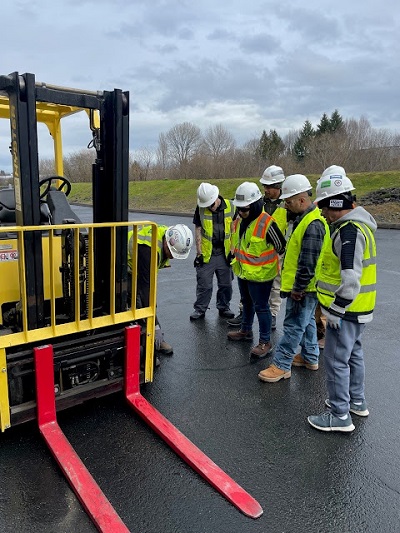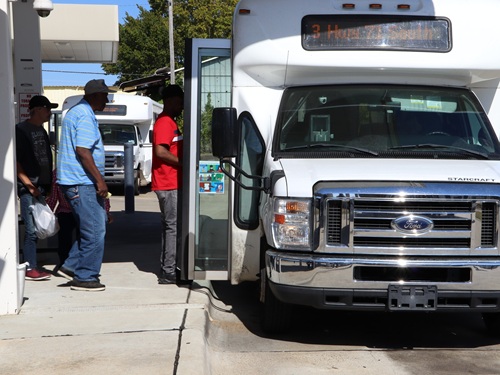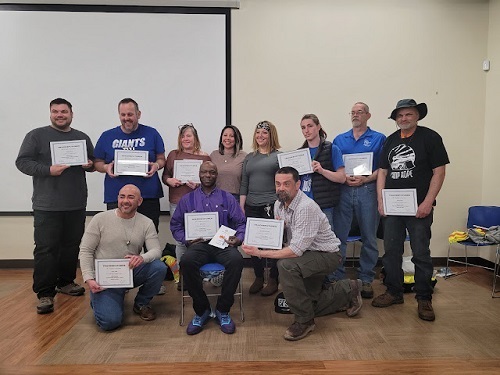The Washington State Department of Transportation is celebrating the success of a program geared toward finding housing and even jobs for homeless individuals living in state roadway rights-of-way.
[Above photo by the WSDOT]
Through Washington State’s Encampment Resolution Program, WSDOT partners with service providers and the Washington State Department of Commerce in King, Pierce, Thurston, Snohomish, and Spokane counties to help those groups of unhoused individuals find housing and participate in job skills training to set them up for long-term success.

The homeless individuals participating in this initiative’s job readiness program receive certifications in Occupational Safety and Health Administration or OSHA regulations, First Aid, and cardiopulmonary resuscitation or CPR emergency training. Students are also trained in forklift operations and flagging for traffic control operations; training that allows them to apply for construction or road work jobs. The training is an important step in connecting graduates to potential employers, including us or other local jurisdictions, WSDOT said.
Those construction-focused training programs – which are provided by i2 strategies – are paid for WSDOT as part of the overall Encampment Resolution Program efforts, including funding through the WSDOT’s Office of Equity and Civil Rights.
The agency stressed in a blog post that this program “isn’t for everyone” living in an encampment; participants are assessed based on needs and readiness for job training. But the people who have graduated from this program say it’s invaluable.
“This (program) taught me I have more to offer than what I am giving myself credit for,” said Joshua Price, who graduated from the Pre-Employment Preparation Program after living in the “Camp Hope” encampment in Spokane. He learned not only job-specific skills but ways to be more stable and successful in other parts of his life. “I gained knowledge and refocused on bettering myself,” he said.
Price – who now works in construction – is now living in emergency housing in Spokane. With a job and place to live, Price is now focused on improving his relationship with his daughter. “This class opened my eyes and challenged me for better outcomes,” he said.
In addition to job-specific skills, the program helps students address barriers to employment. Examples include:
- Driver licenses – both written and driving testing or help reissuing lost cards;
- Obtaining General Educational Development or GED transcripts/documentation;
- Addressing mental or behavioral health challenges;
- Partnering with local pre-apprenticeship and training programs for employment preparation certificates;
- Employment preparation training such as workplace expectations, communication skills, resume workshops, and interview preparation, among other “soft” skills;
- Case management support, including tips on how be successful after finding employment.
Several state departments of transportation are also involved in “non-traditional ways” of helping their communities through workforce training programs.
For example, a recent video detailed how the Kentucky Transportation Cabinet has helped former prison inmates get hands-on crew experience in landscaping, graffiti removal, rest area cleaning, and litter pickups as part of a job skills program aimed at putting them on the path to gainful employment.
Since 2019, the agency has partnered with the Center for Employment Opportunities in its District 5 and District 6 regions to provide employment services exclusively to individuals who have recently returned home from incarceration.
 States
States
Nick Donohue Appointed Virginia’s Secretary of Transportation
December 12, 2025 States
States

